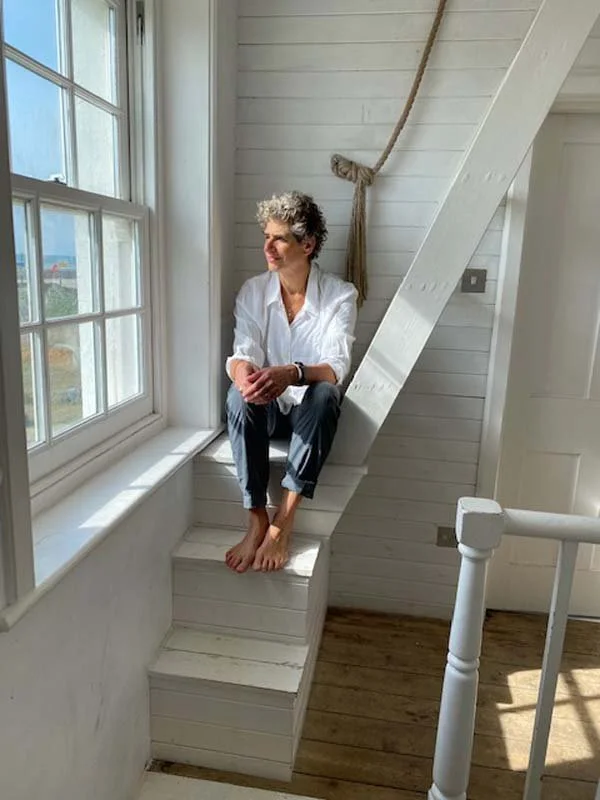By Laura Johanna Braverman
Less and less do I think
of my blood as it ebbs.
Where I used to track the days,
now I hold the bark
of cork-oak and grevillea trunks.
I watch the chafer,
armored in metal-green –
six spiny legs cross the stone.
I see the faded kitchen towels
over the drying line
of a stranger’s house.
And in the lanes of olive trees,
branches bear October fruit,
to be picked, or beaten down
with threshing sticks.
There – pressed flat against
the wild grass, a hedgehog skin,
and there, a fallen levelled nest.
I practice the leaving
of my two sons, strategize
the tear in advance.
But there is, I know
no practicing here.
Less and less do I think
of my red daughter.
She comes unlooked for,
her chance company a reminder
before she returns to earth.
To seed and root – emerge
again, as altered bloom.
the new seed, the new root.
Less and less do I think of my blood
as it ebbs. Where I used to track the days,
now I hold the bark of cork-oak and grevillea trunks.
I watch the chafer, armored in metal-green –
six spiny legs across the stone-step,
see the faded kitchen towels over the drying line
of a stranger’s house.
And in the lanes of olive trees,
branches bear October fruit
to be picked or beaten down with threshing sticks.
There – pressed flat against the wild grass,
a hedgehog skin, and there –
a fallen levelled nest.
Less and less do I think of my red daughter.
She comes unlooked for,
her chance company a reminder –
before she returns to earth,
back to tide and flower,
seed and root.
The Importance of Arts, Culture & The Creative Process
I believe that creative work, in whatever form it may take, allows us to explore our humanity as part of an interconnected web of being. This entails giving the denizens we share this earth with a voice. With the exponential rise of technology, there is an urgency to foster explorations of what it means to be human within the context of a concrete environment, rather than escaping into a virtual reality. Bearing witness can be difficult and frightening, but it can also be the gateway to understanding what (even small) role one might play in nurturing unity, balance and relationship. The project of the Creative Process resonates with me for its unifying aims.
What was the inspiration for your creative work?
The inspiration for my creative work here stems from an interweaving of themes: fostering a close rapport with one’s local environment, eco-poetics and the neo-pastoral; the revisioning of mythology; as well as explorations of the body as a landscape with its own changing weather patterns and seasons. This poem is part of a series that explores the lived experience of the female body, as related to a myth from antiquity – as well as ideas of transformation and regeneration.
Tell us something about the natural world that you love and don’t wish to lose. What are your thoughts on the kind of world we are leaving for the next generation?
What do I love about the natural world? Walking in forests, communing with trees; swimming in lakes, seas and oceans; listening to birdsong, the buzz of insects, wind through pine and leaves; experiencing the mountains, their silence and majesty, their ecosystems – alpine, desert, Mediterranean. I could go on and on. And best of all is to share this with family and our beloved dog. The idea of losing any of this is devastating, and I live with much fear, as well as a sometimes-overwhelming sense of helplessness, as regards our current circumstances. It is also heartbreaking to think what our adolescent children are confronted with, and the resignation I see. One way that I attempt to deal with these powerful thoughts and feelings is to practice presence as much as I can, to bear witness to everything I can – the wildflowers, even if they are coming up through concrete cracks, or near garbage; the smaller and larger pockets of wildness.














































































